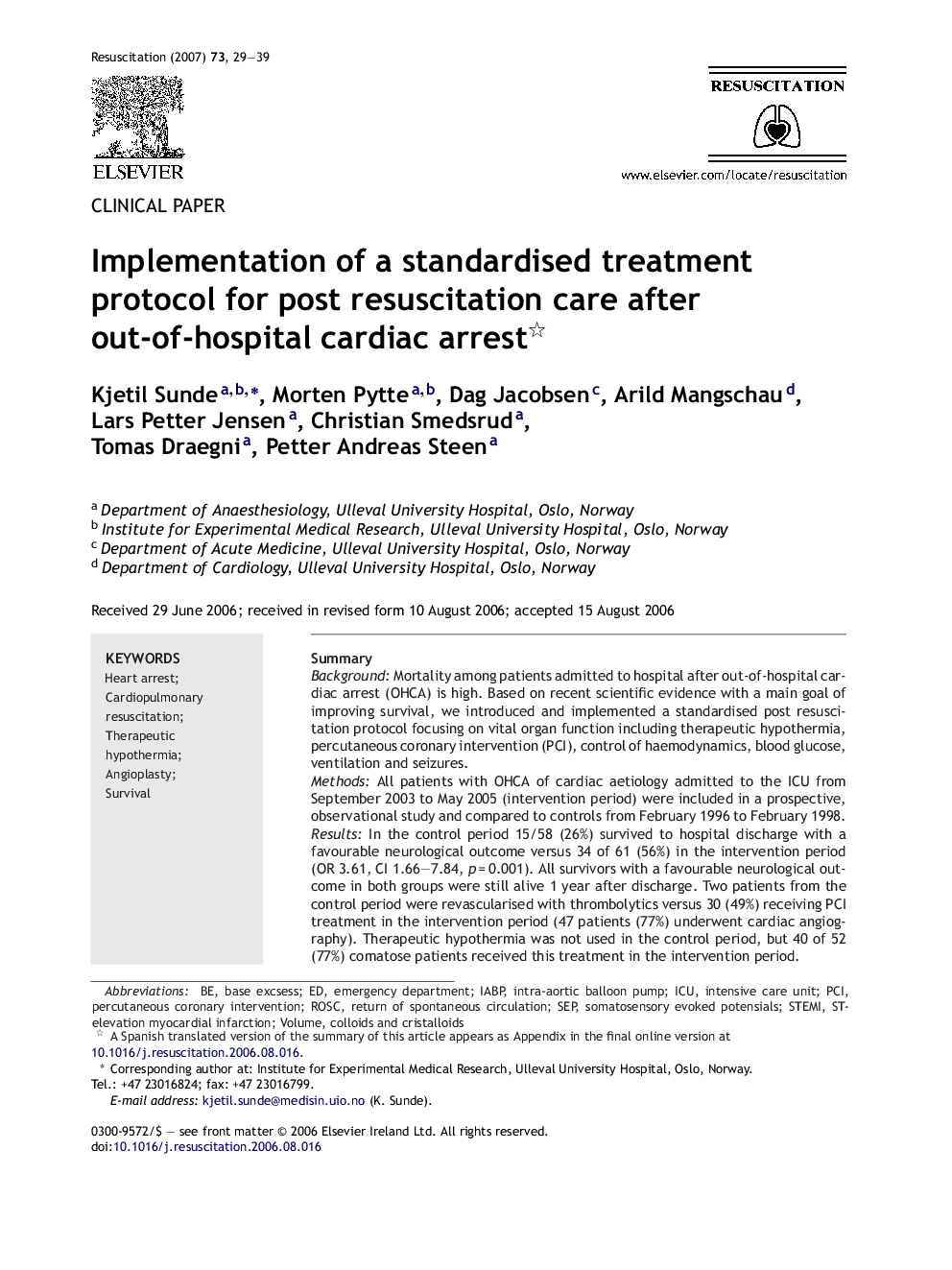| Article ID | Journal | Published Year | Pages | File Type |
|---|---|---|---|---|
| 3011077 | Resuscitation | 2007 | 11 Pages |
SummaryBackgroundMortality among patients admitted to hospital after out-of-hospital cardiac arrest (OHCA) is high. Based on recent scientific evidence with a main goal of improving survival, we introduced and implemented a standardised post resuscitation protocol focusing on vital organ function including therapeutic hypothermia, percutaneous coronary intervention (PCI), control of haemodynamics, blood glucose, ventilation and seizures.MethodsAll patients with OHCA of cardiac aetiology admitted to the ICU from September 2003 to May 2005 (intervention period) were included in a prospective, observational study and compared to controls from February 1996 to February 1998.ResultsIn the control period 15/58 (26%) survived to hospital discharge with a favourable neurological outcome versus 34 of 61 (56%) in the intervention period (OR 3.61, CI 1.66–7.84, p = 0.001). All survivors with a favourable neurological outcome in both groups were still alive 1 year after discharge. Two patients from the control period were revascularised with thrombolytics versus 30 (49%) receiving PCI treatment in the intervention period (47 patients (77%) underwent cardiac angiography). Therapeutic hypothermia was not used in the control period, but 40 of 52 (77%) comatose patients received this treatment in the intervention period.ConclusionsDischarge rate from hospital, neurological outcome and 1-year survival improved after standardisation of post resuscitation care. Based on a multivariate logistic analysis, hospital treatment in the intervention period was the most important independent predictor of survival.
